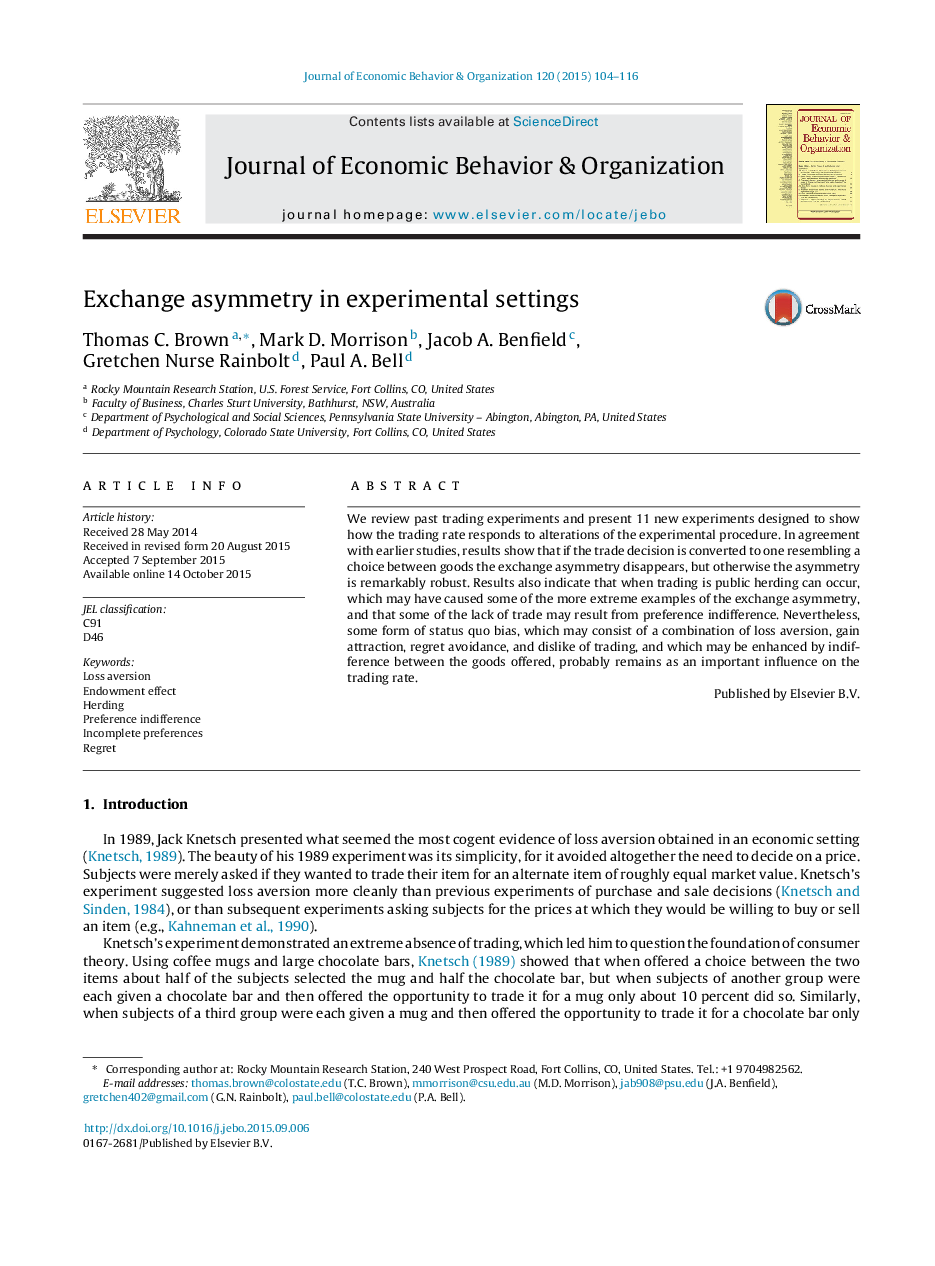| Article ID | Journal | Published Year | Pages | File Type |
|---|---|---|---|---|
| 883445 | Journal of Economic Behavior & Organization | 2015 | 13 Pages |
•Eleven new experiments examine reasons for a lack of expected trading.•Diluting the sense of endowment can eliminate the lack of trade.•Herding behavior is evident when trading decisions are made public.•Preference indifference and imprecision may contribute to the exchange asymmetry.•Status quo bias of some form likely also plays a role in causing the asymmetry.
We review past trading experiments and present 11 new experiments designed to show how the trading rate responds to alterations of the experimental procedure. In agreement with earlier studies, results show that if the trade decision is converted to one resembling a choice between goods the exchange asymmetry disappears, but otherwise the asymmetry is remarkably robust. Results also indicate that when trading is public herding can occur, which may have caused some of the more extreme examples of the exchange asymmetry, and that some of the lack of trade may result from preference indifference. Nevertheless, some form of status quo bias, which may consist of a combination of loss aversion, gain attraction, regret avoidance, and dislike of trading, and which may be enhanced by indifference between the goods offered, probably remains as an important influence on the trading rate.
